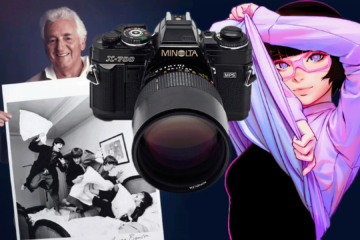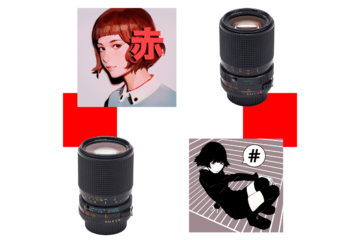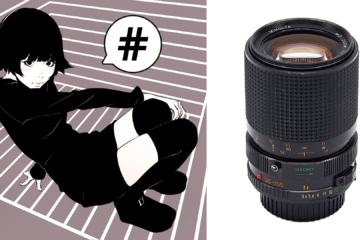Minolta MD 17mm 1:4 – review

Minolta MD 17mm 1:4.0 vintage manual lens test and review
- Official classification: New-MD
- Collector’s classification: MD III
This is the widest Minolta lens that can be used for any scenes without geometric correction in post-editing. A rectilinear type – this is the correct term. Greatly powerful even for “over-pixeled” modern digital cameras.
Minolta MD 17mm 1:4 (MD III, New-MD) specifications
| minolta.eazypix.de index | 17 |
| Name engraved on the lens | MD |
| f[mm] | 17 |
| A max [1/f] | 4 |
| A min[1/f] | 22 |
| Lens design [el.] | 11 |
| Lens design [gr.] | 9 |
| Filter thread Ø front(rear)[mm] | 72 |
| Lens Shade | – |
| closefocus[m/ft] | 0.25/1 |
| Dimension Ø x length [mm] | 75×53 |
| Weight[g] | 325 |
| Year | 1981 |
| Style | MD III |
| Code No. or Order No. | 611-808 |
| Floating elements | YES |
| Aperture blades number | 6 |
| Confidence in the test results of reviewed copies | Very high |
| Reviewed lens SN: | 8002155 |
- Minolta MD 17mm F4.0 optical design
Minolta MD 17mm 1:4.0 lens exterior
Minolta MD 17mm 1:4.0 mounted on Minolta X-700
This is a very suitable set – the camera and lens have the same design (released 1981)
Minolta MD 17mm 1:4 sharpness
Сlose-distance resolution test
Testing methods description
- Target: 10-15 cm picture, printed on glossy photo paper
- Distance:10% longer than minimal focus distance marked on the lens
- Camera: Sony A7II (24mpx, full-frame, tripod, remote control). M-mode, ISO fixed, WB fixed, SteadyShot – OFF.
- The test was repeated for every F-stop on every focus position with manual focus adjustment for each shot. That is to avoid the effect of field curvature.
- RAW processing: Capture One, default settings. All quality settings – 100%. Crops – 300×200 px
Scene preview
Test results (simple version, easy to compare – 4 positions)
Test results (full version – all 9 positions)
Long-distance resolution test
Testing methods description
- Target: cityscape
- Distance: > 200 meters to center focus point
- Camera: Sony A7II (24mpx, full-frame, tripod, remote control). M-mode, ISO fixed, WB fixed, SteadyShot – OFF. The focus point is on the center only.
- RAW processing: Capture One, default settings. All quality settings – 100%. Crops – 300×200 px
Scene preview
Test results
Minolta MD 17mm 1:4 aberrations
Vignetting
Geometric distortion
Coma aberrations
Chromatic aberrations
Short-distance bokeh
Test conditions: lens was focused on minimal distance 0.25m, plants are in 2m distance from the camera
Long-distance bokeh
Test conditions: the lens was focused on half distance on the scale (0.5m), buildings are on “infinity”-distance
Light bubbles bokeh
Test conditions: lens was focused on minimal distance + 10% of scale (about 0.27m), diodes were fixed in 2m distance
Minolta MD 17mm 1:4.0 (or Minolta MD 17mm F/4, New-MD, MD III design) – overall conclusion:
By test results, this ultra-wide-angle Minolta 17mm has got perfect geometry and sharpness. Don’t hesitate: this is a top-level product by the optic-industry. And the year of release should not deceive anyone – because even today just a few companies are capable of producing such optics. Yes, someone may say that this lens is expensive, but on the other hand – is it real to find a cheaper lens and with the same possibilities on 17mm focus distance? And don’t forget – it should be rectilinear. So, if a photographer likes an extremely wide-angle but aren’t ready for fish-eye – he has no many alternatives.
By the way: the auto-focus isn’t necessary on such focal distances. Just one recommendation for “landscapers” – it is better to use F8 to get the best sharpness distribution over the frame. Additionally, the lens looks enough small and lightweight – another one good trait for any lens. So, it seems that this lens has no weaknesses and can be recommended.
































2 Comments
fettmatte · 2021-05-17 at 22:40
thank you for your excellent work. I have read a lot on your site and I like it very much. I also love the MD III lenses. Even if you don’t really like wide-angle lenses, I think you’ve forgotten a masterpiece. The 16mm 2.8 is just wonderful. It has a great build quality and is much sharper than the 17mm F4.
Tony · 2021-05-18 at 14:16
Hello, thank you.
What about Minolta’s 16mm 2.8 – fisheye lenses have no geometry corrections therefore their sharpness cannot be compared with rectilinear lenses, at least before correction when printing photographs or in digital editors